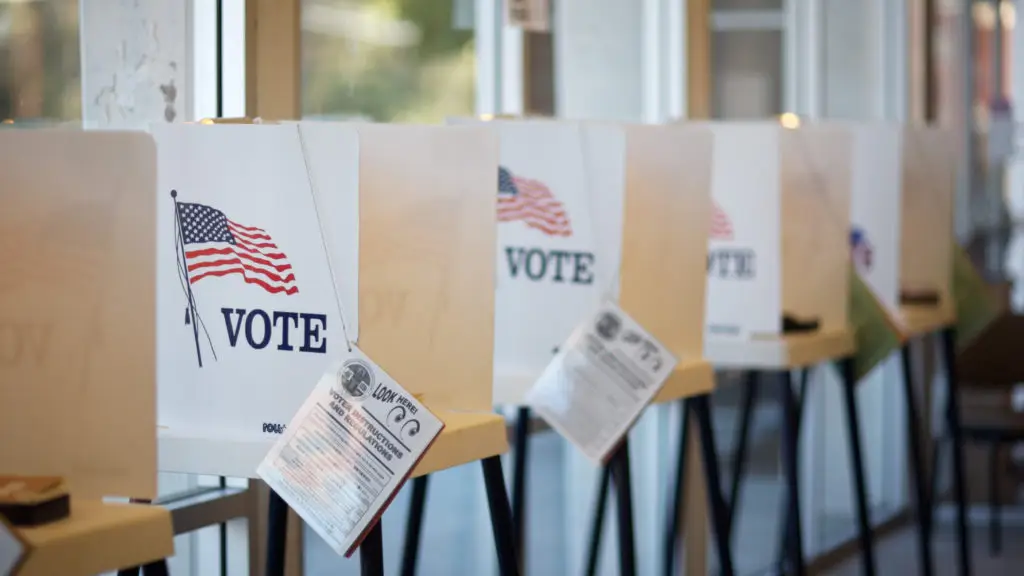Editor’s note: This blog series examines common narratives about charter schools, separates fact from fiction, and highlights legitimate issues that must be addressed. The full series is available here.
Americans are losing faith in democracy. Politics are becoming increasingly polarized. Civic engagement has been in decline for decades.
Observers of these trends are right to wonder if public education helps foster social cohesion, encourages democratic sentiments, and increases students’ appreciation for America’s institutions.
Against this backdrop, some critics have argued the proliferation of charter schools might further erode students’ civic commitments. Schools of choice might allow families to sort themselves into isolated ideological enclaves that deepen political divides and undermine students’ commitment to the common good.
Evidence gathered so far about charter school graduates does not reinforce these fears. Attending charter schools appears to reduce antisocial behavior, like crime and discipline infractions, and increase positive social behavior, like voting.
The newest study, on North Carolina charter high schools, paints a consistently beneficial picture for students who switch to a charter school in 9th grade from a district-run public school. These students are less likely to be chronically absent and suspended and are less likely to commit crimes and more likely to register and vote as an adult. These results are driven by low-income students and students of color, including those who transferred to charter elementary schools. More affluent students who transferred from a charter elementary to a charter high school had the same civic outcomes as similar students in traditional public schools.
Another recent study found that winning a lottery to be admitted to the Democracy Prep network of charter schools is associated with a six percentage point increase in the probability that a student voted in the 2016 election. Democracy Prep is not alone: many other charter networks have strong approaches to citizenship preparation.
Earlier studies found that new charter schools (not preexisting district-run schools that won charter status) improved students’ attendance and reduced disciplinary infractions. Others found students attending charter schools less likely to be incarcerated (and if female, less likely to become pregnant) and more likely to graduate high school and attend college, and have higher earnings.
All of these results should be interpreted with caution, because charter school results vary depending on the organization running the school, the city and state where they operate, and countless other variables. One study shows a negative relationship between the number of charter schools in a district and voter turnout in school board elections, but not in other elections for general government offices. This is the only study showing potentially negative citizenship outcomes, and it comes from the one state that, at the time of the study, allowed a variety of government and nonprofit organizations to authorize charter schools.
With that one exception, results are consistently positive, and should be enough to convince those who worry charter schools will do civic harm. Although existing studies are not nationally representative and don’t test for every possible civic outcome, they cover a range of important outcomes in diverse places.
People who fear the social effects of charter schools still make assumptions about the agendas of their sponsors—that schools supported by business leaders will teach individualism and the goodness of greed, or teach hostility to people who don’t look like them or share their beliefs.
The fact that in most states public bodies like school boards and state agencies must authorize charter schools is apparently not seen as sufficient protection against groups committed to antisocial agendas.
Some simply fear the effects of having some children attend schools that use distinctive methods and curricula. They assume those children can’t emerge ready to engage with others and be guided by beliefs in political equality, free speech, and the democratic process. Others claim, as Henry M. Levin did in his contribution to an edited volume on charter schools, that democratic education can happen only in schools controlled by elected school boards.
The performance of charter schools to date, and of Catholic schools in earlier times, prove that civic outcomes depend more on what students experience in school than on who sponsors or operates them—as David Campbell documented in his masterful review. In today’s America it is ridiculous to argue that all graduates leave any type of school ready to become active citizens who know how to advance their own interests while respecting others.
What kinds of schooling experiences lay the groundwork for democratic citizenship? The literature is pretty clear: students who take demanding courses, get good grades, persist in school, go on to college, and enter the workforce with marketable skills are more likely to vote, tolerate differences, and support free speech. Children who are expected to speak in class, make presentations and take part in evidence-based and respectful arguments are also more likely to believe in political equality and freedom of speech.
“Open classrooms,” as described by Godfrey and Grayman, teach students to advance their own views and manage differences of opinion, whether in district-run public schools, charter schools, secular private schools, Catholic parishes, or Yeshivas.
On average, children in economically secure middle-class communities are likely to have civic learning experiences, whether in public or private schools, and have these lessons reinforced at home. Disadvantaged children depend heavily on what they learn in school.
It makes sense to worry about civics education. We know little about what passes for civics education in schools affected by poverty, geographic isolation, or school systems burdened by histories of racial tension and unresolved conflicts about white supremacy. We do know civics teachers in all sorts of schools struggle to engage students in discussions of hard issues.
Excellent ideas show how to improve civics education, including Walter Parker’s inquiry-based civics. Levin has suggested that charter school organizations work on a curriculum of applying knowledge to local political, social, and economic challenges. This is a good idea for district-run schools too. Brookings’ Robert Litan has suggested greatly expanding the use of debate in schools for all students.
At a time when concern about our civic life is intense, Americans should be ready to think hard and experiment with new ideas. Public education writ large must do a much better job. Raising unfounded fears of charter schools is merely a way of deflecting attention from the real problem.




